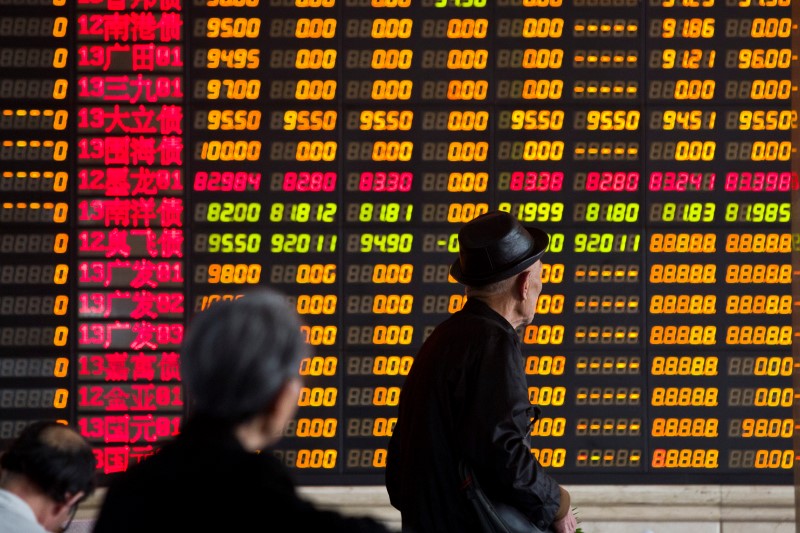Investing.com -- Most Asian stock markets retreated on Wednesday, tracking losses in U.S. stocks as a deal to raise the debt ceiling remained out of reach, while fears of worsening Sino-U.S. tensions also dampened sentiment towards the region.
Chinese stocks lagged most of their peers, with the Shanghai Shenzhen CSI 300 and Shanghai Composite indexes down 0.6% and 0.5%, respectively. Losses in Hong Kong-listed Chinese stocks pulled the Hang Seng down 1.1%.
China recently banned the use of U.S.-based Micron Technology's (NASDAQ:MU) chips in select sectors over security concerns, drawing ire from U.S. lawmakers. This also came as Beijing criticized the Group of Seven’s stance towards the country, as well as a recent trade agreement reached between the U.S. and Taiwan.
This largely outweighed comments from President Joe Biden that relations with China were set to improve, and ratcheted up concerns over a renewed trade war between the world’s two largest economies.
A slowing post-COVID rebound in China also cast a pall over local stocks, and also weighed on stock indexes with exposure to the country.
South Korea’s KOSPI lost 0.2%, while Australia’s ASX 200 index fell 0.5%. The Taiwan Weighted index was flat.
Japan’s Nikkei 225 slid 1.1%, while the broader TOPIX lost 0.5% as both indexes retreated from 33-year highs hit earlier in the week. Japanese stocks were widely seen as due for some profit taking after a stellar eight-session rally.
A Reuters poll forecast the Nikkei largely reversing its gains made in May by the year-end, as the Japanese economy slows.
Thailand's SET Index rose 0.2% as it recovered from a recent two-year low. But investors remained on edge over the formation of a new government, following a surprise defeat of the military junta in a recent election. The progressive Move Forward party announced this week that it had reached agreements with seven other parties to form a coalition government.
Other Asian markets retreated on Wednesday, as U.S. lawmakers signaled scant progress toward reaching a deal and avoiding a debt default. This comes ahead of an early-June deadline for a U.S. default, which could have dire consequences for the global economy.
Wall Street indexes slid in overnight trade, providing a weak lead-in to regional stocks.
A swathe of weaker-than-expected manufacturing readings from across the globe also rattled sentiment towards risk-driven assets, as traders grew more wary of a recession later this year.
Markets are now awaiting more cues on monetary policy from the minutes of the Federal Reserve’s May meeting, due later in the day.
